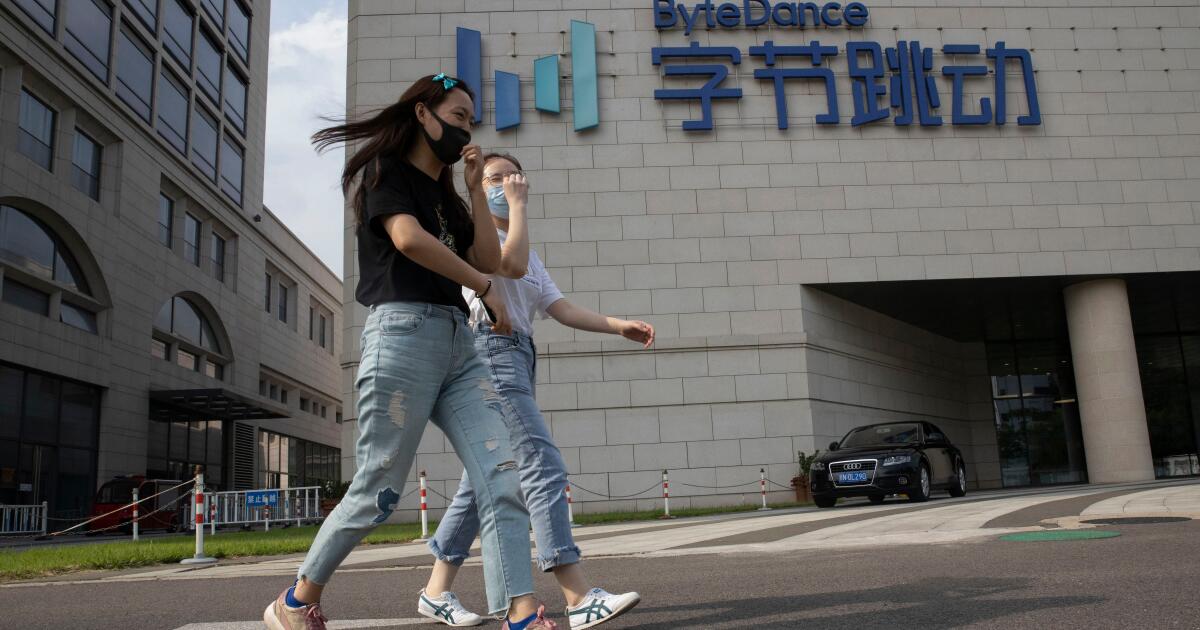Hollywood groups condemn ByteDance’s AI video generator
A new artificial intelligence video generator from Beijing-based ByteDance, the creator of TikTok, is drawing the ire of Hollywood organizations that say Seedance 2.0 “blatantly” violates copyright and uses the likeness of actors and others without permission.
Seedance 2.0, which is available only in China for now, lets users generate high-quality AI videos using simple text prompts. The tool quickly gained condemnation from the movie and TV industry.
The Motion Picture Assn. said Seedance 2.0 “has engaged in unauthorized use of U.S. copyrighted works on a massive scale.”
“By launching a service that operates without meaningful safeguards against infringement, ByteDance is disregarding well-established copyright law that protects the rights of creators and underpins millions of American jobs. ByteDance should immediately cease its infringing activity,” Charles Rivkin, chairman and chief executive of the MPA, said in a statement Tuesday.
Screenwriter Rhett Rheese, who wrote the “Deadpool” movies, said on social media last week that “I hate to say it. It’s likely over for us.” His post was in response to Irish director Ruairí Robinson’s post of a Seedance 2.0 video that shows AI versions of Tom Cruise and Brad Pitt fighting in a post-apocalyptic wasteland.
Actors union SAG-AFTRA said Friday it “stands with the studios in condemning the blatant infringement” enabled by Seedance 2.0.
“The infringement includes the unauthorized use of our members’ voices and likenesses. This is unacceptable and undercuts the ability of human talent to earn a livelihood,” SAG-AFTRA said in a statement. “Seedance 2.0 disregards law, ethics, industry standards and basic principles of consent. Responsible AI development demands responsibility, and that is nonexistent here.”
ByteDance said in a statement Sunday that it respects intellectual property rights.
“[We] have heard the concerns regarding Seedance 2.0. We are taking steps to strengthen current safeguards as we work to prevent the unauthorized use of intellectual property and likeness by users,” the company said.
The dispute comes a month after ByteDance finalized a deal to secure TikTok’s future in America. ByteDance agreed to divest majority ownership of U.S. operations to an American-led investor group, averting a shutdown of the hugely popular social media app.
President Trump during his first term sought to ban the platform, citing national security concerns, but he shifted his views after ByteDance agreed to the new joint venture.
The venture now has three managing investors: Silver Lake, Oracle and Emirati investment firm MGX, each holding 15%, with ByteDance retaining 19.9% of investments.
Ortutay writes for the Associated Press. Times Staff writer Cerys Davies contributed to this report.
